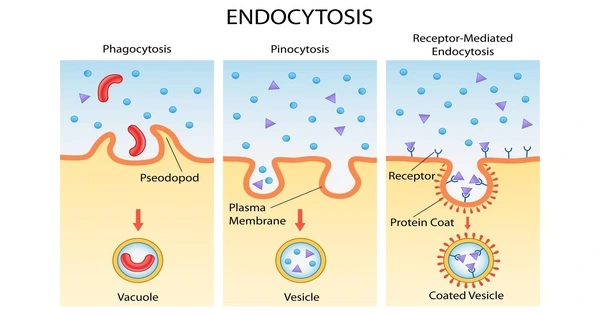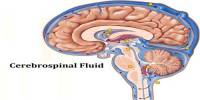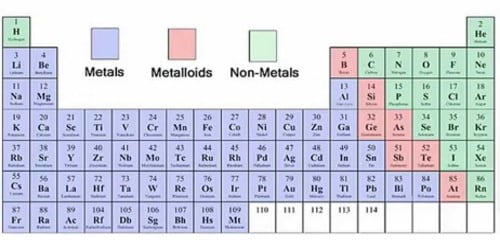Endocytosis is a cellular process that allows substances to enter the cell. It is a cellular process in which cells absorb molecules from their surroundings (such as proteins, lipids, and other substances). This mechanism involves particle engulfment by the cell membrane, which results in the formation of vesicles.
An area of cell membrane surrounds the material to be internalized, which buds off inside the cell to form a vesicle containing the ingested material. These vesicles are then internalized into the cytoplasm of the cell, allowing it to absorb nutrients, regulate signaling molecules, and control the composition of its membrane. Pinocytosis (cell drinking) and phagocytosis (cell eating) are examples of endocytosis. It is a type of active transportation.
There are several types of endocytosis, including:
- Phagocytosis: This is a process where large particles, such as bacteria, debris, or other cells, are engulfed by the cell. Specialized cells, like macrophages and neutrophils, are typically involved in phagocytosis.
- Pinocytosis: Pinocytosis, also known as “cell drinking,” is the non-selective uptake of small dissolved molecules and extracellular fluid. The cell membrane invaginates, encircling small droplets of fluid and forming internalized vesicles.
- Receptor-Mediated Endocytosis: This is a more specific type of endocytosis in which molecule uptake is tightly controlled. It entails the attachment of specific molecules to cell surface receptors. The cell membrane invaginates once the receptors are bound, and the bound molecules are internalized in vesicles. This process is critical for the absorption of hormones, cholesterol, and other important molecules.
Endocytosis is essential for many cellular functions, including nutrient acquisition, waste removal, and cell signaling regulation. It is required for cellular homeostasis and adaptation to changes in the extracellular environment. It also participates in a variety of physiological processes such as immune response, hormone regulation, and cell signaling. Endocytosis disruptions can have serious consequences for cellular function and may contribute to a variety of diseases, including certain types of cancer and neurodegenerative disorders.
















